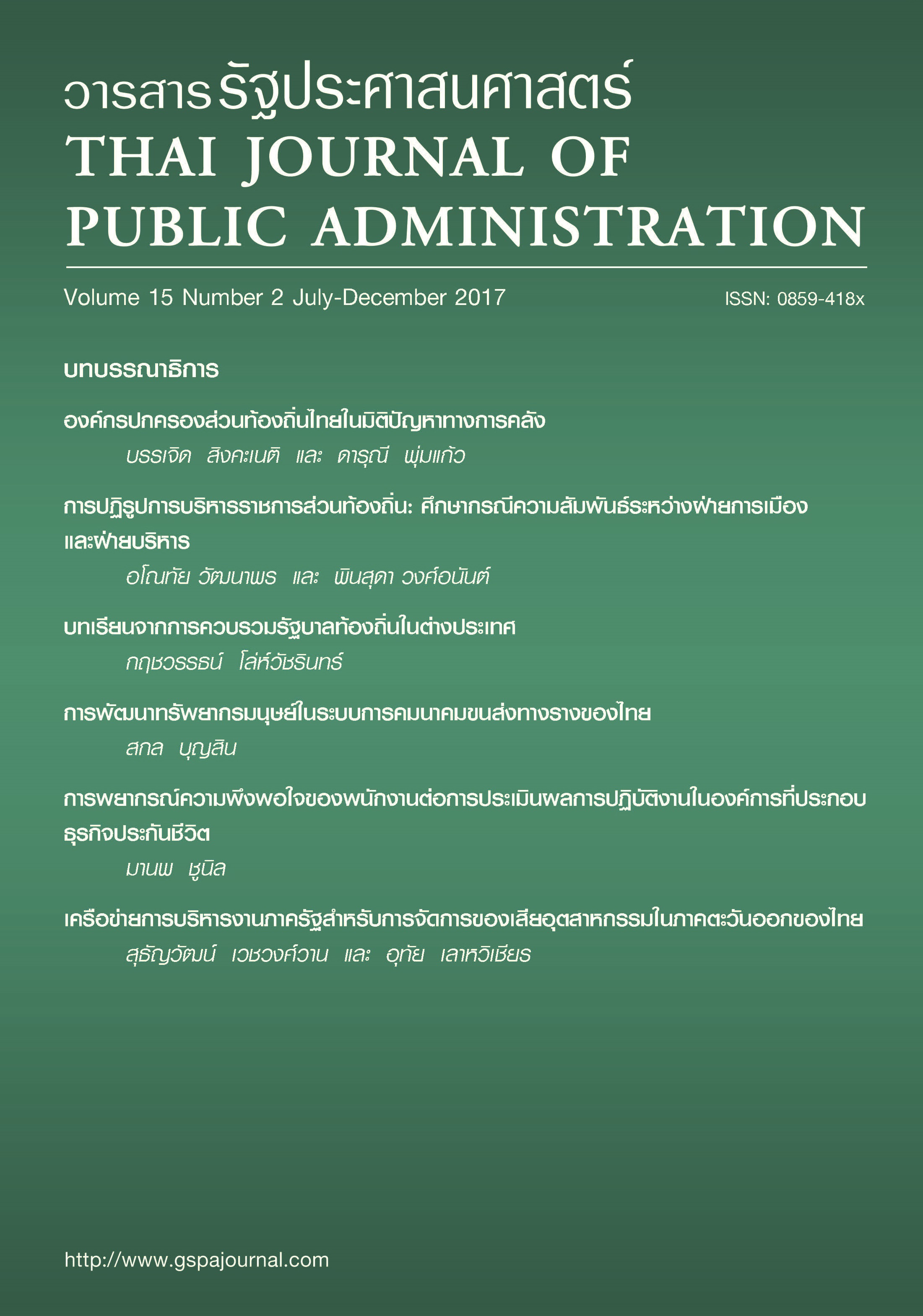Reformation in Local Administration: A Study of the Relationship between Politics and Administration
Keywords:
Politicians, bureaucrats, corruption, governance, merit system and patronage systemAbstract
This article is part of a larger study on reformation in local administration and the relationship between politics (politicians) and administration (bureaucrats), funded by King Prajadhipok’s Institute (2016). The objectives of the study were: 1) to study problems regarding the relationship between politics (politicians) and administration (bureaucrats) in local administrative organizations of small-sized municipalities (tambon, or sub-district, municipalities promoted to be muang, or town, municipalities), district-level municipalities, and sub-district administrative organizations, and 2) to explore strategies for the reformation of problematic conditions identified in the first objective. For this qualitative study, data were collected using two methods. First, information in documents was collected and analyzed. Second, field data were collected through in-depth interviews. Focus group participants were selected from five groups, namely, employees and managers of the National Counter Corruption Commission (NCCC), local government officials, local politicians and contractors. The results of the study indicated that within the context of a democratic regime and Thai elections, the social and economic background of politicians may have an impact on political and administrative motivation and behavior. With regard to administrative behaviors of politicians, motivations for entering politics may affect their behavior throughout the duration of their position in local administrative organizations and are manifested in the patronage system and corruption. Both behaviors certainly have an impact on government officials and officials in local government organizations. Eventually, they will also affect the good governance system, performance and efficiency of local administrative organizations.



